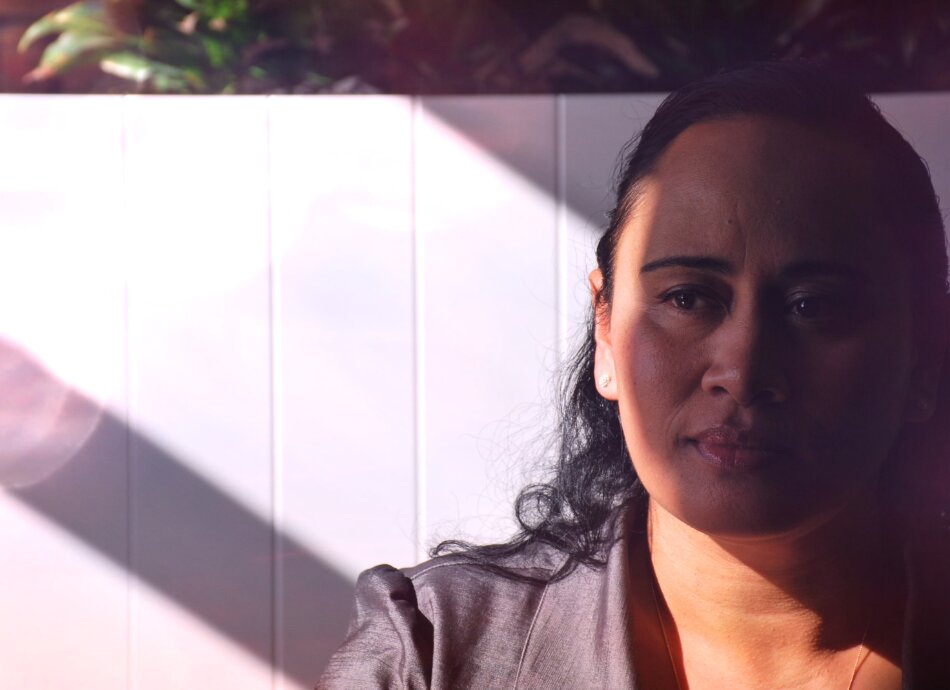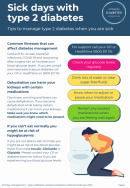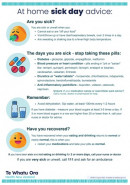Reference
- Sick day management in patients with diabetes(external link) Ministry of Health and Society for the Study of Diabetes, NZ, 2020

If you're a frequent visitor to Healthify, why not share our site with a friend? Don't forget you can also browse Healthify without using your phone data.

When you are unwell, your body produces stress hormones that cause your blood glucose levels to rise, even if you are eating less than usual. But some people who are taking medicines for diabetes may have low blood glucose (hypoglycaemia) when they are unwell. This can make blood glucose levels difficult to manage. Knowing what to do in advance may help you recover faster.
Reach out to a whānau member or friend, and let them know you are unwell and that you are taking medication for type 2 diabetes. Ask them to check on you regularly and tell them who they can contact for you if necessary.
| If you develop the following, call your doctor, nurse or diabetes clinic or go to your closest hospital emergency department |
If you are significantly unwell call 111 for help. |
Keep your fluids up by drinking water to avoid dehydration (your body getting dry). Try to have at least one glass (200 mL) every 1–2 hours. Dehydration can happen very quickly, especially if you have vomiting (being sick) and diarrhoea (runny poos).
Try to eat your normal types and amounts of food. If you find this difficult, try having light meals such as soup, dry toast or crackers.
Your sick day plan should include specific advice about how you should manage your diabetes medicines when you are unwell. If you are not drinking and eating as usual, or have vomiting, and diarrhoea your diabetes medication may need adjustment. It is important to contact your healthcare provider for advice if you are unsure about what to do. The following is a guide.
| Guidance on how to manage your diabetes medicines when you are unwell |
InsulinNever stop your insulin: If you are unable to eat or drink, call your healthcare provider to decide if you should reduce your dose. It is important that you never stop taking your insulin without advice from a health care professional. |
Empagliflozin (Jardiance and Jardiamet)Stop taking empagliflozin if you are unwell, irrespective of your symptoms. Taking empagliflozin when you are unwell increases your risk of high ketones levels, which can cause a serious but rare side effect called ketoacidosis. |
Glipizide, gliclazide and glibenclamideIf you are not eating well regardless of type of illness, stop taking glipizide, gliclazide and glibenclamide – you are at increased risk of low blood glucose (hypoglycaemia). Restart when you are well (usually after 24–48 hours of eating and drinking normally). |
Metformin, vildagliptin (Galvus and Galvumet) and acarboseOnly stop metformin, vildagliptin and acarbose if you have severe gastro, such as vomiting and diarrhoea (multiple episodes, or lasting more than a few hours), and are at risk of dehydration. Restart when you are well, usually 24–48 hours after your gastro symptoms have cleared. |
Dulaglutide (Trulicity)Dulaglutide is given as a once weekly injection. It usually does not cause problems if your are slightly unwell, but if you are at risk of dehydration, with vomiting and diarrhoea and not eating and drinking as usual, you can withhold the next injection when it is due. |
Anti-inflammatories (also called non-steroidal anti-inflammatories or NSAIDs) are often used for pain or fever. Common examples include ibuprofen (Ibugesic®, I-Profen®, Nurofen®), diclofenac (Voltaren®), naproxen (Noflam®, Naprosyn®) and celecoxib (Celebrex®).
If you have diabetic renal disease and/or are taking ACE inhibitor/ARB therapy, you must not take anti-inflammatories. These can be harmful to your kidneys. Read more about anti-inflammatories and blood pressure medicines.
Many people who have diabetes are also on blood pressure medicines. Some of these medicines (eg, cilazapril, quinapril, lisinopril, perindopril, candesartan and losartan) should be stopped for a few days if you are at risk of dehydration. Talk to your healthcare provider about what to do about your blood pressure medicines when you are sick.
If you are taking steroid tablets, especially in high doses, this will raise your blood glucose (hyperglycaemia). You may need to adjust the dose of your diabetes medicines. Contact your doctor – they will advise you on how best to manage this. Examples of steroid tablets include prednisone, dexamethasone, hydrocortisone and methylprednisolone. Read more about steroid tablets.
At home sick day advice(external link) Health New Zealand | Te Whatu Ora
See our page Diabetes for healthcare providers
Sick day management in patients with diabetes(external link) (T2DM), NZ Society for the Study of Diabetes, 2022
Best practice diabetes toolbox(external link) BPAC, NZ, 2021
Sick day management in primary care for type 1 and type 2 diabetes(external link) PHARMAC, NZ
Sick day management – general practice management of type 2 diabetes(external link) Royal Australasian College of General Practitioners
Type 2 diabetes management guidance(external link) NZ Society for the Study of Diabetes and Ministry of Health, NZ, 2021

Sick day management with type 2 diabetes
Aotearoa Diabetes Collective, 2025

At home sick day advice
Health New Zealand | Te Whatu Ora, 2023

Health Quality and Safety Commission, NZ, 2019 English, te reo Māori
Credits: Sandra Ponen, Pharmacist Healthify editorial team. Healthify is brought to you by Health Navigator Charitable Trust.
Reviewed by: Dr Ryan Paul, Endocrinologist, Hamilton
Last reviewed:
Page last updated: